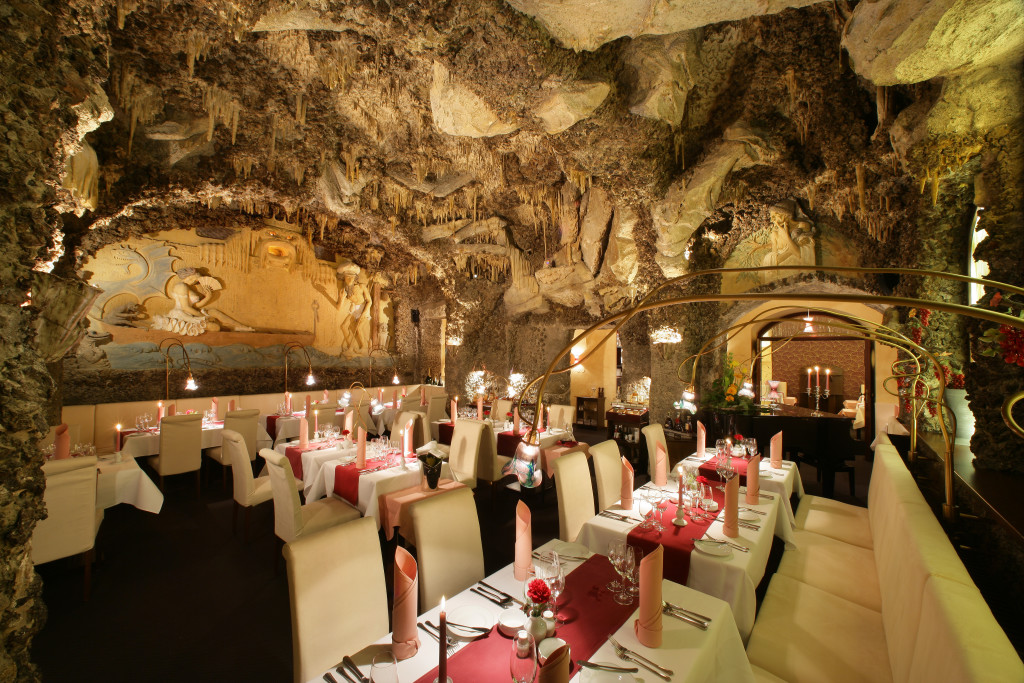Located in the pedestrian zone at the lower end of Prague’s central Wenceslas Square, the four-star Adria Hotel has a lot more history than is immediately apparent on its delightfully understated, yellow-and-white facade. Hidden within the heritage-listed structure are foundations from the Middle Ages; a historic stalactite-cave cellar belonging to the city’s premier Art Nouveau restaurant, the Triton; and an admirable example of eco-consciousness, championed by Mr. Karel Doubek, a soft-spoken pioneer of sustainable hospitality in the Czech Republic.
Doubek is the Adria’s general manager. Since 1992, he has guided the hotel through its steady eco-evolution, one informed by both personal values and a conviction attributed to the owner’s grandfather, František Tichý. A century ago, Tichý presided over the hotel believing that “it must be good for the owner, the staff, the nearby community and the guests.”
“Everything in the hotel is still managed with this in mind,” says Doubek. “The sentence may be more than 100 years old, but it’s the same as corporate social responsibility today. A good way to have satisfied guests is to have satisfied staff and to engage with our community.”
This is one reason why Doubek applied for the EU Ecolabel. Recognised across Europe, it has been awarded since 1992 to the 10 to 20 percent most environmentally friendly products on the market, including tourist accommodation.
After a year of preparation, the Adria Hotel received its EU Ecolabel confirmation in September 2008. It was the first four-star hotel in Prague (and third hotel in the country) to earn such a certification, and it is still the only one on Wenceslas Square.
“It was not difficult to get it,” recalled Doubek. “One day I saw the Ecolabel in a list of European Union labels –
many, many of them. I wondered what it was, looked for it on the Internet and saw, I think, 82 criteria. When I read them I said ‘Oh, we satisfy 90 percent of these criteria.’”
This was because the owners and Doubek had implemented ecological ideas during the hotel’s 1992 general reconstruction. “Sixteen years before certification, we bought and installed eco-friendly technology. We didn’t know the rules, but naturally prepared for them. So looking at the criteria, I knew we didn’t have to make a big new investment. It was just normal,” reflected Doubek.
Already in place were things like energy recovery ventilation in public areas, induction ovens and absorption refrigerators in the kitchen, and floors and walls constructed out of natural materials such as stone and Venetian plaster. Additionally, for years, the housekeeping chemicals had been purchased only from eco-certified companies, and recycling had been in practice since 1995, making the hotel “I think,
the first in Prague to recycle waste,” said Doubek.
The hotel is proud of its connections to the community, which is in evidence throughout the property. Breakfast relies heavily on local providers of honey, dairy, fresh herbs, pastries, cakes, cookies and chicory coffee. In order to offer healthy and refreshing breakfast drinks, staff from the hotel regularly collect fresh herbs – sweet balm, mint, lavender and sage – from the adjacent Franciscan Garden, which the hotel helps to maintain by hand and with great care. And a cabinet of “letter mugs” awaits all guests. They were painted by people from DUHA Company, a civic association that aims to improve the lives of mentally
and physically handicapped people.
In keeping with Tichý’s commitment to community, Doubek and his team have also taken community leadership roles beyond the hotel’s walls
by, among other things, lobbying successfully to turn lower Wenceslas Square into a pedestrian zone, collaborating with other like-minded organizations to promote car-free bike days in Prague, and caring for the historic Petřínka water spring on nearby Petřín Hill.
Even with its prior commitment to community and sustainability, the Adria has had to make additional changes to become ever ‘greener’. In the bathrooms, shower water flow was reduced, resulting in an 18 percent drop in consumption but steady customer satisfaction, and single- portion amenities were replaced by bulk soap and shampoo dispensers for a 30 percent savings. Rule changes regarding the central air-handling system led to a 55 percent drop in operation time without a change in comfort or air quality. And, though it comes at a premium, 50 percent of the hotel’s electricity is sourced from alternative energy producers.
The leadership of the Adria Hotel had the foresight to build ecological efficiency into its operations starting long ago. Hotels without this won’t find sustainable practices as easy to implement; however, as Doubek says, “You can do it and demonstrate a return of business value. For me it’s also about the value to community and to my family and child.”
Prague’s Adria Hotel


